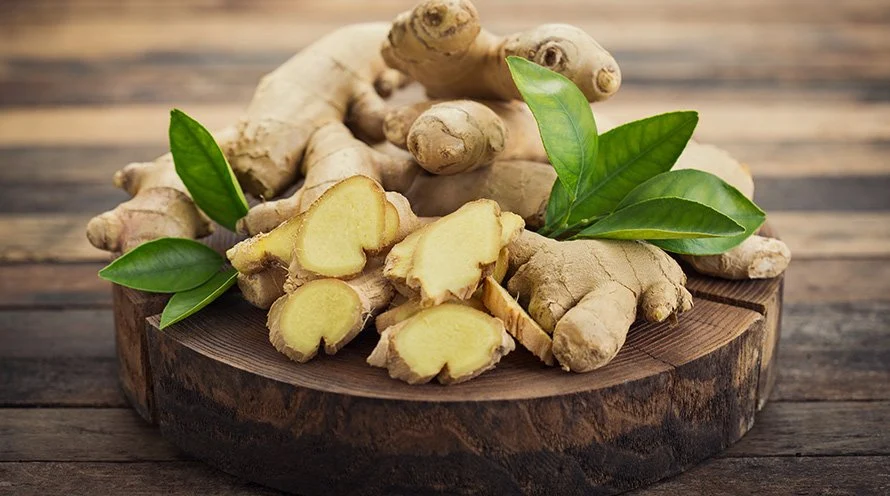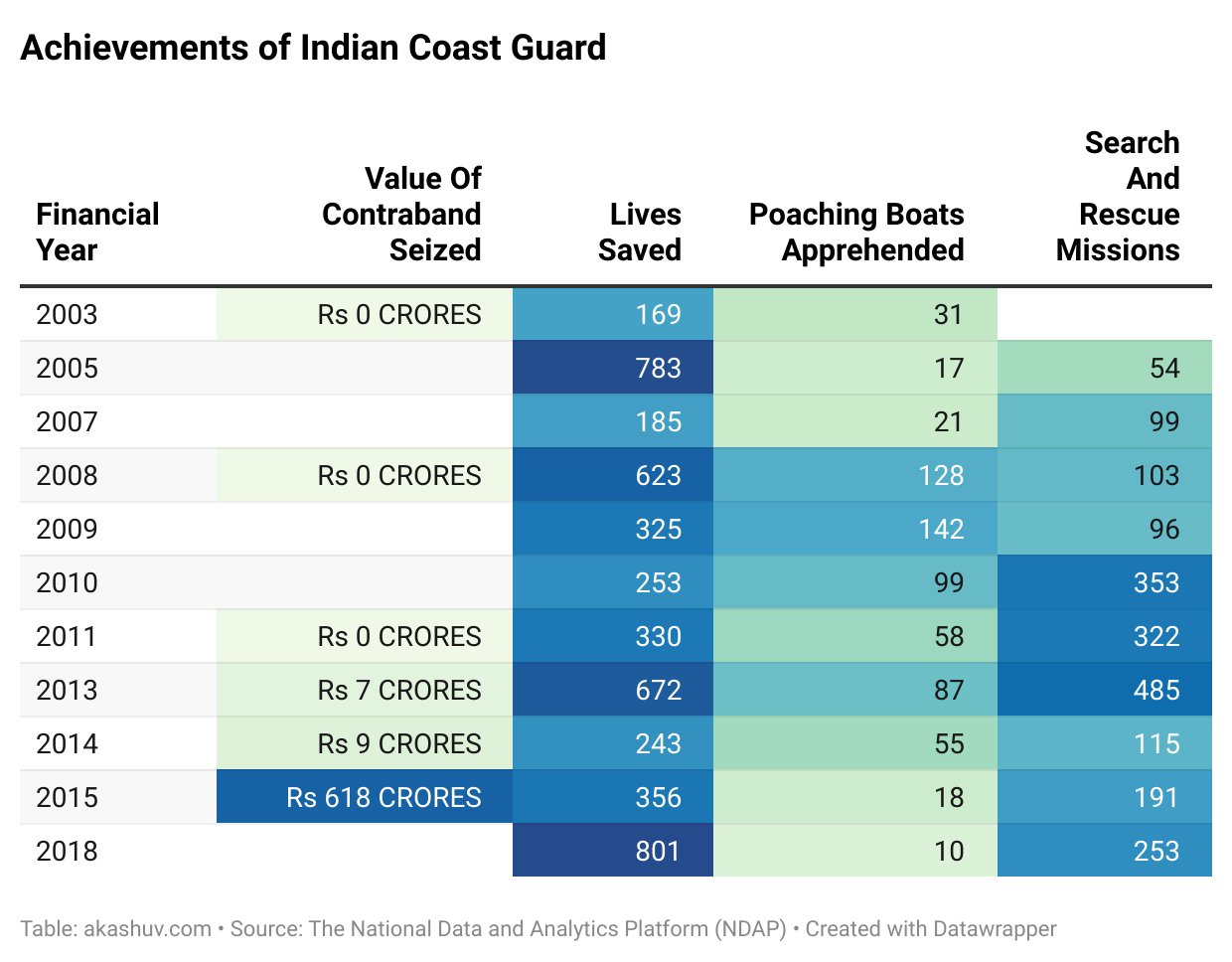Ginger Tea: A Natural Remedy for Period Bloating – An Indian Youth’s Guide
Menstrual cycles can be challenging, with cramps, mood swings, and the infamous bloating making it hard to function at your best.
If you’re an Indian youth juggling studies, work, and social commitments, the added discomfort of period bloating can feel like an unwelcome guest. But what if the solution lies in your kitchen?
According to age-old wisdom—something our mothers have always known—ginger tea is a simple, effective remedy for easing period bloating.
This blog delves into why ginger tea is a go-to solution for menstrual bloating and how it aligns with the lifestyle of Indian youth. Let’s explore how this golden elixir can make your period days a little easier.
Understanding Period Bloating
Period bloating occurs due to hormonal fluctuations, particularly increased levels of estrogen and progesterone. These hormones cause water retention, which leads to a feeling of puffiness or tightness, especially around the abdomen.
While bloating is a normal part of the menstrual cycle, it can be uncomfortable and frustrating.
Why Do Indian Youth Face More Challenges?
As a young Indian, you may already have a hectic lifestyle, balancing academics, work, or other responsibilities. Add to this the cultural expectations and dietary habits that sometimes lean heavily on processed foods, salt, or caffeine—all of which can exacerbate bloating.
Furthermore, in many Indian households, discussing menstruation with male family members is still considered taboo. Some deeply ingrained cultural practices also restrict women during their menstrual cycle, such as not allowing them to enter the kitchen or sleep in a proper bed.
These emotionally distressing practices can, in turn, cause stress, leading to the release of cortisol, a stress hormone that worsens physical discomfort, including bloating.
This is where natural remedies like ginger tea can make a significant difference.
Why Ginger Tea Works Wonders for Period Bloating
1. Anti-inflammatory Properties
Ginger contains powerful anti-inflammatory compounds called gingerols and shogaols. These help reduce the inflammation in the gut, relieving bloating and soothing abdominal discomfort.
2. Promotes Digestive Health
Bloating often stems from digestive issues like slow metabolism or gas buildup. Ginger tea stimulates the digestive enzymes, aiding in faster digestion and reducing gas.
3. Diuretic Effect
Ginger tea has mild diuretic properties that help flush out excess water from the body, reducing water retention and puffiness.
4. Hormonal Balance
Ginger may also play a role in regulating hormones, helping reduce the severity of period symptoms, including bloating, cramps, and mood swings.
5. Warmth and Comfort
A hot cup of ginger tea provides warmth and relaxation, which can ease period discomfort and elevate your mood during challenging days.
Ginger Tea for Period Bloating: Step-by-Step Approach with External Resources
Here’s how you can implement ginger tea as a remedy for period bloating, broken down into actionable steps. Additionally, external links provide deeper insights and credibility.
Step 1: Understand the Science Behind Ginger and Menstrual Health
Before diving into remedies, it’s helpful to understand why ginger is effective for bloating and menstrual discomfort. Research confirms its anti-inflammatory, digestive, and hormone-regulating properties.
External Resources:
Step 2: Gather Ingredients
Head to your kitchen or a local grocery store to gather the following ingredients:
- Fresh ginger root
- Water
- Optional: honey, lemon, or additional spices like cardamom
External Resources:
- BBC Good Food: Why Fresh Ginger Is Better Than Powder
- Times of India: Ginger Benefits in Indian Cooking
Step 3: Prepare Ginger Tea
Follow this quick recipe:
- Boil 2 cups of water in a pan.
- Grate or thinly slice 1-2 inches of fresh ginger.
- Add the ginger to the boiling water and let it simmer for 5-7 minutes.
- Strain the tea into a cup.
- Add a teaspoon of honey or a squeeze of lemon for extra flavor.
External Resources:
Step 4: Drink Responsibly
Consume ginger tea once or twice a day during your menstrual cycle. Avoid drinking excessive amounts, as it can lead to acidity or heartburn in some individuals.
External Resources:
Step 5: Pair Ginger Tea with Lifestyle Adjustments
For maximum relief, complement ginger tea with:
- Hydration: Drink at least 2-3 liters of water daily.
- Diet: Include fiber-rich foods and avoid salty snacks.
- Light Exercise: Try yoga or gentle stretching exercises.
External Resources:
Step 6: Monitor the Results
Keep track of how ginger tea affects your period symptoms over a few cycles. If the bloating significantly reduces, incorporate it into your routine. However, if symptoms persist, consult a healthcare provider.
External Resources:
- WebMD: When to See a Doctor for Menstrual Symptoms
- National Library of Medicine: Gut Health and Hormonal Cycles

Quick Overview of the Steps to Use Ginger Tea for Period Bloating
- Understand the Science Behind Ginger
Ginger’s anti-inflammatory and digestive properties make it effective for easing period bloating. Its ability to regulate hormones also helps reduce discomfort during your menstrual cycle. - Gather the Ingredients
You’ll need fresh ginger root, water, and optional ingredients like honey, lemon, or cardamom for added flavor. - Prepare Ginger Tea
Boil 2 cups of water, add grated or sliced ginger, and let it simmer for 5-7 minutes. Strain into a cup and add honey or lemon if desired. - Drink Responsibly
Drink ginger tea once or twice a day during your period, but avoid overconsumption to prevent acidity or heartburn. - Pair with Lifestyle Adjustments
Stay hydrated, eat fiber-rich foods, and engage in light exercise like yoga to enhance the effectiveness of ginger tea in reducing bloating. - Monitor the Results
Track how your symptoms change over a few cycles. If bloating decreases, continue using ginger tea. If symptoms persist, consult a healthcare provider.
By following these simple steps, you can naturally manage period bloating and stay connected to time-tested, culturally rooted remedies.
When and How Often Should You Drink Ginger Tea?
For best results, drink ginger tea:
- 1-2 times a day during your menstrual cycle, especially when bloating is at its peak.
- First thing in the morning on an empty stomach or in the evening for a calming effect.
Avoid overconsumption, as too much ginger can sometimes cause heartburn or acidity.
The Cultural Connection: Wisdom Passed Down
In Indian households, natural remedies like ginger tea have been trusted for generations. Whether it’s curing a sore throat or soothing an upset stomach, ginger holds a revered place in Ayurvedic medicine. Our mothers and grandmothers often know the value of these age-old practices, even when modern science is just catching up.
As Indian youth, incorporating these traditional remedies into your lifestyle allows you to stay connected to your roots while addressing modern-day health challenges.
Why Ginger Tea Fits the Lifestyle of Indian Youth
- Quick and Easy to Prepare: With minimal ingredients and effort, ginger tea can be made in minutes, making it perfect for busy students or young professionals.
- Affordable and Accessible: Ginger is readily available in most Indian kitchens, making this remedy cost-effective and convenient.
- Customizable Flavor: You can experiment with add-ons like cardamom, cinnamon, or tulsi to suit your taste preferences.
- Holistic Wellness: Beyond bloating, ginger tea helps with cramps, nausea, and even stress—common challenges faced by Indian youth.
Additional Tips to Combat Period Bloating
While ginger tea is an excellent remedy, combining it with a healthy lifestyle can enhance its effects:
- Stay Hydrated: Drink plenty of water to prevent water retention.
- Reduce Salt Intake: Avoid salty snacks, which can worsen bloating.
- Eat Fiber-Rich Foods: Include fruits, vegetables, and whole grains in your diet to promote digestion.
- Exercise Gently: Yoga and light stretches can help alleviate bloating and cramps.
- Limit Caffeine: Replace coffee with herbal teas like ginger, chamomile, or peppermint during your period.
Conclusion: A Cup of Comfort
Ginger tea is more than just a beverage—it’s a cup of comfort, offering relief from period bloating and other menstrual woes. As an Indian youth navigating the complexities of modern life, embracing this traditional remedy can be a game-changer for your overall well-being.
The next time your period brings along bloating, listen to your mom’s advice and brew yourself a warm, soothing cup of ginger tea. It’s a small act of self-care that can make a big difference.
So, why wait? Give ginger tea a try and experience its magical benefits for yourself!
Disclaimer:
The information provided in this blog is intended for general informational purposes only. While ginger tea has been traditionally used in Ayurvedic medicine and has some proven health benefits, it should not be considered a substitute for professional medical advice, diagnosis, or treatment. Always consult with a healthcare provider before making any significant changes to your diet, especially if you have underlying health conditions or are taking medications.
Individual results may vary, and excessive consumption of ginger can lead to side effects such as heartburn or gastrointestinal discomfort. Please consume ginger tea in moderation.
The external resources linked in this article are for reference purposes and do not necessarily reflect the views or recommendations of the author.
-

The Secret Hack for Writing a Winning Statement of Purpose for MBA Abroad
The Secret Hack for Writing a Winning Statement of Purpose for MBA Abroad
Are you dreaming of securing a spot in a prestigious business school abroad? Your Statement of Purpose (SoP) could be the game-changer you need. An effective SoP can significantly enhance your MBA application strategy and increase your chances of getting into your dream school. Let’s dive into the critical components of MBA applications, the often-overlooked details, and insider secrets to crafting a standout SoP.
Understanding the Critical Components
1. Clear and Compelling Narrative
Your SoP should tell a story—a compelling narrative that seamlessly connects your past, present, and future. Admissions committees seek engaging stories that make candidates memorable. For instance, this article from QS explains how storytelling can turn your SoP into a standout piece.
Example: Jennifer, a successful MBA applicant, crafted her SoP around her transformative experience as a project manager, emphasizing her leadership skills and aspirations.
2. Alignment with Program Goals
Aligning your personal and professional goals with the program’s objectives is crucial. Research the business school’s mission, values, and curriculum. Tailor your SoP to demonstrate why you’re the perfect fit. Tools like Poets&Quants can help you understand the nuances of different MBA programs.
Overlooked Elements in MBA Applications
1. Authentic Voice
Many applicants overlook the power of authenticity in their voice. Avoid using generic templates or cliché phrases. Instead, let your unique personality and perspective shine through. Harvard Business Review offers excellent insights into professional storytelling and how to stand out.
2. Specific Achievements
Admissions committees appreciate tangible examples over vague claims. Highlight measurable achievements that showcase your potential.
Example: Instead of saying, “I have excellent leadership skills,” say, “I led a team of 10 to complete a project that increased our company’s revenue by 20%.” Read more about this approach on Accepted.
Common Mistakes to Avoid
1. Grammatical and Spelling Errors
Sloppy writing can instantly undermine your application. Proofread your SoP multiple times and use tools like Grammarly or Hemingway Editor to refine your writing.
2. Lack of Focus
A poorly structured SoP with no clear focus can confuse admissions committees. Organize your SoP with a clear introduction, body, and conclusion. Resources like Purdue OWL provide excellent guidance on structuring professional documents.
Enhancing Your MBA Application Strategy
1. Research the School Thoroughly
Understanding the school’s culture, values, and unique features is key. Tailor your SoP to reflect your alignment with their mission. Check resources like The Financial Times MBA Rankings to research schools.
2. Highlight Extracurricular Activities
Your extracurricular activities reveal leadership, teamwork, and time management skills. For example, if you’ve volunteered for a non-profit or led a community project, include these in your SoP. Find tips for showcasing these experiences on Study Abroad Shiksha.
Essential Tips for Standout Applications
1. Start Early
Starting early gives you ample time to brainstorm, draft, and revise. It also allows you to gather feedback from mentors or professional editors. Platforms like EssayEdge specialize in refining SoPs for MBA applications.
2. Seek Feedback
Feedback is invaluable. Share your SoP with mentors or peers who can provide constructive criticism. Services like MBAMission offer professional insights to enhance your application.

What Admissions Committees Look For
1. Leadership Potential
Admissions committees value candidates who demonstrate leadership. Highlight situations where you took initiative, managed a team, or solved a significant problem. LinkedIn Learning offers courses that can help you develop leadership skills and frame them effectively in your SoP.
2. Passion and Enthusiasm
Show genuine excitement for pursuing an MBA and how it aligns with your long-term goals. Use your SoP to explain why this program is essential for your career trajectory.
Insider Secrets for Effective Applications
1. Use Storytelling Techniques
Storytelling can make your SoP both engaging and memorable. Share specific anecdotes to illustrate your achievements and aspirations. Learn how to use storytelling effectively in this guide by Stanford GSB.
2. Quantify Your Achievements
Adding numbers to your achievements adds credibility. Instead of vague statements, provide specific metrics. For example:
- “Increased sales by 30% in one quarter.”
- “Managed a team of 15 across three departments.”
Find examples of quantitative storytelling on MBA.com.
Improving Your Application Chances
1. Attend Information Sessions
Information sessions provide valuable insights into the admissions process and help you tailor your SoP. Check out events on the GMAC official website.
2. Network with Alumni
Alumni can share firsthand experiences and advice about crafting a strong application. Use platforms like LinkedIn to connect with graduates from your target schools.
Conclusion
Crafting a winning Statement of Purpose for your MBA application abroad is more than just a task—it’s a journey of self-discovery and strategic planning. By focusing on authenticity, specificity, and alignment with program goals, you can create an SoP that stands out. Avoid common mistakes, utilize insider tips, and let your unique story shine.
Good luck with your MBA journey! With the right approach, you’re one step closer to securing a spot at your dream business school.
- Nuts and Legumes: A Surprising Connection Explained (And Why It Matters to Your Diet)
- Where Do Pine Nuts Originate From? A Journey of Delicious Delicacy
- Discover the 7 Types of Tree Nuts: Unlocking Nutrition and Flavor
- India’s Electric Vehicle Revolution: A 5-Year Growth Story
- Safeguarding the Maritime Nation: Achievements of the Indian Coast Guard
-

Unlocking Career Opportunities: Why Specializations and Focus Areas Matter in Today’s Job Market
In a world where industries are constantly evolving, staying ahead of the curve has never been more critical. How can professionals ensure they remain relevant and in demand? The answer lies in specializations and focus areas. In this guide, we’ll explore why honing expertise in a niche is essential, how to identify the right focus area, and steps to grow in-demand skills to elevate your career.
What are Specializations and Focus Areas?
Specializations and focus areas are specific domains of expertise within a broader field. These niches define what sets you apart in the professional arena.
For example:
- In technology, fields like artificial intelligence, blockchain, and data analytics are growing rapidly.
- In healthcare, specializations like telemedicine, mental health services, or geriatric care are gaining attention.
- In business, areas like digital marketing, e-commerce strategy, and sustainable practices are increasingly valuable.
By delving deep into one of these focus areas, you position yourself as an expert—a professional equipped to tackle specialized challenges.
Why are Specializations and Focus Areas Important?
In today’s competitive job market, generalists often struggle to stand out. Here’s why choosing a niche is transformative:
- Enhanced Employability:
Companies seek professionals with unique skills tailored to specific roles. A clear focus area makes your profile more attractive. - Higher Earnings Potential:
Expertise commands value. Specialized professionals often enjoy higher salaries and perks compared to generalists. - Job Security in Uncertain Times:
Specialization in emerging fields ensures resilience against automation or industry disruptions. - Fulfillment in Work:
By aligning your career with areas you’re passionate about, you’re likely to find greater satisfaction and motivation.
How to Choose the Right Specialization or Focus Area
Picking the perfect niche can feel overwhelming, but these steps can simplify your journey:
1. Identify Your Interests
Reflect on activities or subjects you’re naturally drawn to. For instance, if you enjoy problem-solving, data science could be your calling.
2. Analyze Market Demand
Use tools like Google Trends, LinkedIn Job Reports, or career platforms to uncover high-growth industries.
3. Leverage Your Strengths
Match your skills to industry needs. Are you great with numbers? Financial analysis might be a promising path.
4. Seek Mentorship
Talk to industry experts. Their insights into career pathways can be invaluable.
Developing Skills to Excel in Your Niche
Once you’ve identified your focus area, build expertise through consistent learning:
a) Enroll in Online Certifications
- Platforms like Coursera, Udemy, and edX offer targeted courses.
- Example: Specializations in AI or cybersecurity can be learned from Google or IBM-backed programs.
b) Network Effectively
- Join professional communities on platforms like LinkedIn or local meetups.
- Attend industry events to exchange knowledge and connect with peers.
c) Gain Hands-On Experience
- Take on freelance projects or internships to apply your knowledge practically.
- Create a portfolio showcasing your work, particularly in creative or tech-driven domains.
d) Stay Updated
- Subscribe to newsletters, follow industry leaders, and regularly read publications like Forbes or TechCrunch.
Real-World Examples of High-Demand Specializations
Here are some booming niches across industries:
- Tech & IT:
- Artificial Intelligence and Machine Learning
- Cloud Computing and DevOps
- Cybersecurity
- Sustainability & Environment:
- Renewable Energy Systems
- Green Construction
- Healthcare:
- Digital Health and Telemedicine
- Personalized Medicine
- Business & Management:
- E-commerce and Digital Strategy
- Crisis Management
From Specialization to Career Success: Next Steps
Ready to dive into your focus area? Here’s a roadmap to success:
- Define a clear learning pathway for your specialization.
- Build connections through industry events and communities.
- Continuously adapt your skills as industries evolve.
- Share your expertise by blogging, creating tutorials, or speaking at events.
Call to Action: Take Charge of Your Career Today
Don’t wait to stand out in the competitive job market. Explore online learning platforms, join a professional community, or attend a workshop today. Remember, the sooner you specialize, the sooner you unlock new opportunities.
-

What Is a Bachelor of Business Administration (BBA) and Why Should You Pursue It?
What Is a Bachelor of Business Administration (BBA) Degree?
A Bachelor of Business Administration (BBA) degree is a four-year undergraduate program that provides students with a deep understanding of business fundamentals. The program equips aspiring professionals with skills in management, finance, marketing, and entrepreneurship, preparing them for the dynamic corporate world.
Whether you’re aiming to lead a team, manage financial portfolios, or launch a business, a BBA degree offers a versatile foundation to achieve your career ambitions.
Benefits of Pursuing a BBA Degree
A BBA degree offers several advantages that extend beyond academics:
1. Developing Essential Business Skills
Students gain practical skills such as effective communication, critical thinking, problem-solving, and leadership—skills highly valued in any industry.
2. Career Opportunities Across Industries
Graduates can explore roles in diverse fields such as:
- Finance: Financial Analyst, Portfolio Manager
- Marketing: Brand Strategist, Digital Marketing Manager
- Human Resources: Recruitment Specialist, HR Consultant
- Operations: Project Manager, Operations Analyst
3. Building a Strong Professional Network
BBA programs often emphasize networking through alumni events, industry projects, and internships. These connections can lead to mentorship opportunities and career advancements.
4. Competitive Salary Prospects
The earning potential for BBA graduates is attractive, with starting salaries ranging between $50,000 and $100,000 annually, depending on specialization and location.
Career Trajectory with a BBA Degree
Graduates with a BBA degree have numerous career pathways:
1. Management Roles
BBA graduates often enter management roles in sectors such as healthcare, retail, technology, or manufacturing. Positions include:
- Business Development Manager
- Operations Manager
2. Financial Careers
Specializing in finance opens doors to roles like:
- Financial Analyst
- Investment Banker
- Risk Manager
3. Marketing Opportunities
For those inclined towards creativity and strategy, marketing offers opportunities in:
- Market Research
- Advertising
- Social Media Management
4. Human Resources Development
Graduates can excel in HR by managing recruitment, employee relations, and organizational growth strategies.
Educational Outcomes of a BBA Degree
A BBA program combines theory with practical learning. Key components include:
1. Business Core Courses
Students study subjects like:
- Principles of Management
- Accounting and Finance
- Marketing Strategies
2. Specializations
Specializations allow students to focus on areas such as:
- International Business
- Entrepreneurship
- Supply Chain Management
3. Electives and Internships
Elective courses and hands-on internships provide exposure to real-world challenges, enhancing employability.
Why Pursue a BBA Degree?
A BBA degree offers a strong steppingstone for those passionate about business:
1. Holistic Skill Development
Master skills such as strategic planning, negotiation, and decision-making.
2. Career Growth Opportunities
Advance in competitive industries with a well-rounded knowledge base.
3. Networking for Success
Form valuable connections through alumni networks and industry collaborations.
Conclusion
Pursuing a Bachelor of Business Administration (BBA) degree is an investment in your future. It not only sharpens your business acumen but also provides a versatile platform to explore various industries. With its blend of theoretical and practical learning, a BBA degree prepares you for leadership roles and entrepreneurial ventures.
Call-to-Action (CTA)
Ready to take the first step toward a thriving career in business? Explore BBA programs that align with your interests and career aspirations. Focus on programs offering internships, specializations, and networking opportunities to gain a competitive edge.
Reference:











Leave a Reply to Period Bloating: 6 Natural Remedies to Feel Better | A Youth's Guide Cancel reply